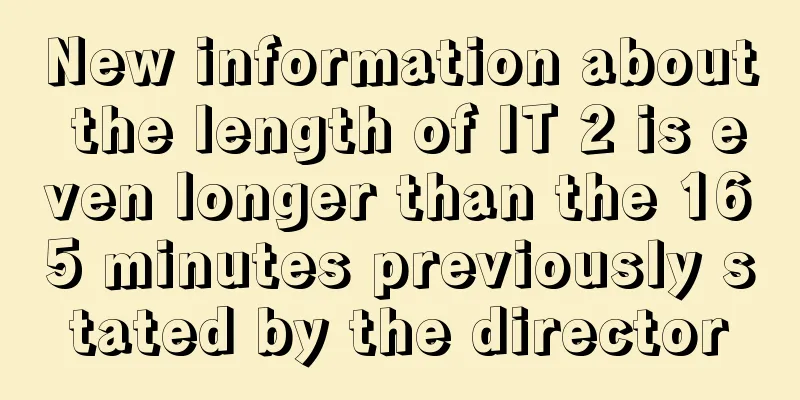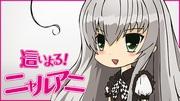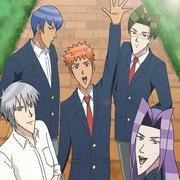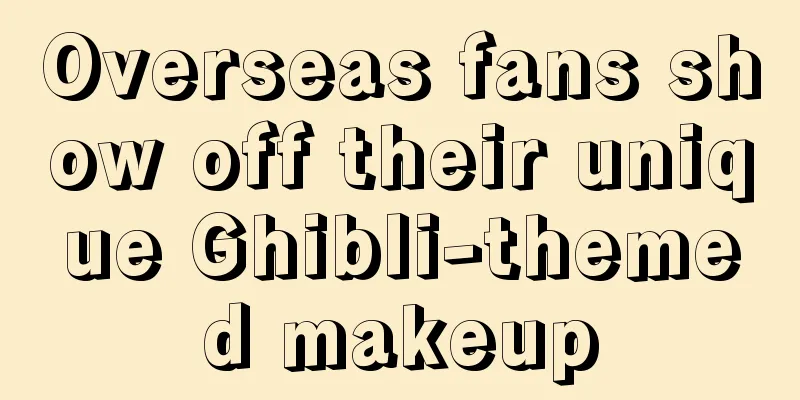The appeal and reviews of "Stop!! Hibari-kun!": A must-see anime experience
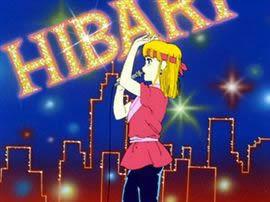
Stop!! Hibari-kun! - A masterpiece of 80's parody romantic comedy■Overview of the work"Stop!! Hibari-kun!" is a TV anime series that aired from 1983 to 1984, based on the manga of the same name by new wave author Eguchi Hisashi. The series is known as a parody romantic comedy that brought a breath of fresh air to the anime industry at the time. It aired from May 20, 1983 to January 27, 1984, with a total of 35 episodes airing on CX (now Fuji TV) every Friday from 7:00 to 7:30 PM. It was produced by CX and Toei (Digital Animation). ■ StoryKosaku Sakamoto, who lost his mother, comes to Tokyo relying on an uncle he knows. However, the house is the home of the head boss of the Kanto Yakuza Federation, Kanto Ozora-gumi, and many of his subordinates come to greet him. "I came here because it was my mother's will and I had no other place to go, but this house is run by the yakuza. That's a harsh joke, mom..." Kosaku tries to run away, but as he stands up and puts his hand on the shoji screen, a cute girl (?) stands in front of him, smiling. That girl is none other than the eldest son of the house, Hibari. "...She's so cute, I'll hold off on running away..." Kosaku decides to stay in the house for a while. "Kosaku, you're going to Wakaba Gakuen with me starting tomorrow!" Hibari winks lightly. Beautiful flowers are blooming all around, and for some reason, it looks like stars are shining as well to Kosaku. ■ExplanationThe original work is a masterpiece by new wave writer Eguchi Hisashi, and is a parody romantic comedy featuring abnormal characters - a genre of anime that had never been seen before. Eguchi Hisashi's unique style and humor was adapted into an anime, giving viewers a fresh surprise. In particular, the relationship between the main character Kosaku, who ends up living in a yakuza's house, and Hibari, a boy who cross-dresses, left a strong impression on viewers at the time. Furthermore, the parodies and gags depicted in the work are still beloved today as symbols of 80s anime culture. ■Cast・Hibari Ozora/Satomi Mashima・Kosaku Sakamoto/Toru Furuya・Ibari Ozora/Joji Yanami・Tsugumi Ozora/Fumi Hirano・Tsubame Ozora/Kyoko Irokawa・Suzume Ozora/Tomiko Suzuki ■ Main staff・Original story by Eguchi Hisashi・Planning by Yokoyama Kenji and Oka Tadashi・Production by Ohno Kiyoshi and Sasaki Akira・Screenplay by Yanagawa Shigeru, Asano Yumi, Tsuchiya Tokio, and others・Series director by Hisaoka Takashi・Direction by Imazawa Tetsuo, Ikeda Hiroyuki, Sasagawa Hiroshi, and others・Character design by Kanemori Yoshinori・Art design by Kubota Tadao and Mukuo Takamura・Music by Nishimura Koji ■ Theme songs and music・OP ■ Appeal and evaluation of the work"Stop!! Hibari-kun!" won many fans with its unique worldview and humor. In particular, the relationship between the main characters Kosaku and Hibari gave viewers a fresh surprise. Hibari is a boy who cross-dresses, and his comical interactions with Kosaku are one of the charms of the show. The setting of a yakuza's house was also fresh to viewers at the time. The parodies and gags depicted in the work are still loved today as symbols of 80s anime culture. In particular, Hisashi Eguchi's unique style and humor have not lost their appeal even after it was made into an anime, leaving a strong impression on viewers. The character designs and art designs also provided fresh surprises to viewers at the time. Music was also an important element in enhancing the appeal of the work. The opening theme "Stop!! Hibari-kun!" and the ending theme "Kongara Connection" left a strong impression on viewers. In particular, the opening theme "Stop!! Hibari-kun!" is still loved today as it symbolizes the worldview of the work. ■Influence and evaluation of the work"Stop!! Hibari-kun!" is acclaimed as a work that breathed fresh air into the anime industry of the 1980s. In particular, Hisashi Eguchi's unique style and humor did not lose their appeal even after it was made into an anime, leaving a strong impression on viewers. Furthermore, the parodies and gags depicted in the work are still loved today as symbols of 1980s anime culture. The influence of the work extends not only to the anime industry, but also to other media such as manga and novels. In particular, Hisashi Eguchi's unique style and humor have influenced many authors. Furthermore, the parodies and gags depicted in the work are still loved today as symbols of 80's anime culture. ■Recommending a work"Stop!! Hibari-kun!" is loved by many fans as a work that symbolizes the anime culture of the 1980s. In particular, Hisashi Eguchi's unique style and humor did not lose their appeal even after it was made into an anime, and left a strong impression on viewers. In addition, the parodies and gags depicted in the work are still loved today as a symbol of the anime culture of the 1980s. I highly recommend this work to anyone who is interested in 80s anime culture or who likes the works of Hisashi Eguchi. I also recommend it to anyone who likes humor and parody. In particular, the relationship between the main characters Kosaku and Hibari will give viewers a fresh surprise, so be sure to watch it. ■Detailed information about the work"Stop!! Hibari-kun!" is a TV anime series that aired from 1983 to 1984, based on the manga of the same name by new wave author Eguchi Hisashi. The series aired from May 20, 1983 to January 27, 1984, with a total of 35 episodes broadcast on CX (now Fuji TV) every Friday from 7:00 to 7:30 PM. It was produced by CX and Toei (Digital Animation). The story begins when Kosaku Sakamoto, who lost his mother, comes to Tokyo to rely on an uncle he knows. However, the house is the home of the head boss of the Kanto Yakuza Federation, Kanto Ozora-gumi, and he is greeted by many of his subordinates. "I came here because it was my mother's will and I had no other place to go, but this house is run by the yakuza. That's a harsh joke, mom..." Kosaku tries to run away, but as he stands up and puts his hand on the shoji screen, a cute girl (?) stands in front of him, smiling. That girl is none other than the eldest son of the house, Hibari. "...She's so cute, I'll hold off on running away..." Kosaku decides to stay with the house for a while. "Kosaku, you're going to Wakaba Gakuen with me starting tomorrow!" Hibari winks at him. Beautiful flowers are blooming all around, and for some reason, it looks like stars are shining all over the place. The explanation for this work is that the original work is a masterpiece by new wave writer Eguchi Hisashi, and it is an anime work of a genre that had never been seen before - a parody romantic comedy with abnormal characters. Eguchi Hisashi's unique style and humor was adapted into an anime, giving viewers a fresh surprise. In particular, the relationship between the main character Kosaku, who ends up living in a yakuza's house, and Hibari, a boy who cross-dresses, left a strong impression on viewers at the time. Furthermore, the parodies and gags depicted in the work are still loved today as symbols of 80s anime culture. The cast of the film includes Mashima Satomi as Ozora Hibari, Furuya Toru as Sakamoto Kosaku, Yanami Joji as Ozora Ibari, Hirano Aya as Ozora Tsugumi, Irokawa Kyoko as Ozora Tsubame, and Suzuki Tomiko as Ozora Suzume. The main staff of the work include original author Eguchi Hisashi, planning by Yokoyama Kenji and Oka Masashi, production by Ohno Kiyoshi and Sasaki Akira, scriptwriters Yanagawa Shigeru, Asano Yumi, Tsuchiya Tokio, etc., series director Hisaoka Takashi, direction by Imazawa Tetsuo, Ikeda Hiroyuki, Sasagawa Hiroshi, etc., character design by Kanemori Yoshinori, art design by Kubota Tadao and Mukuo Takamura, and music by Nishimura Koji. The theme songs for the series are the opening theme "Stop!! Hibari-kun!", with lyrics by Akira Ito, music and arrangement by Izumi Kobayashi, and vocals by Yukino Yuki. The ending theme "Kongara Connection" with lyrics by Akira Ito, music and arrangement by Izumi Kobayashi, and vocals by Ai Hoshino. ■ Work evaluation and recommendation"Stop!! Hibari-kun!" is loved by many fans as a work that symbolizes the anime culture of the 1980s. In particular, Hisashi Eguchi's unique style and humor did not lose their appeal even after it was made into an anime, and left a strong impression on viewers. In addition, the parodies and gags depicted in the work are still loved today as a symbol of the anime culture of the 1980s. I highly recommend this work to anyone who is interested in 80s anime culture or who likes the works of Hisashi Eguchi. I also recommend it to anyone who likes humor and parody. In particular, the relationship between the main characters Kosaku and Hibari will give viewers a fresh surprise, so be sure to watch it. |
<<: The appeal and reviews of "BemBem Hunter Kotengu Tenmaru": A must-see anime experience
>>: The appeal and evaluation of "Nine": Exploring new possibilities for baseball anime
Recommend
"Avengers 4" surpassed Harry Potter and the Deathly Hallows 6 days after its release and entered the top 10 of global box office history
"Avengers 4: End Game" is setting new b...
"Let's Make Our Dreams Come True": A moving story and its appeal that we can learn from everyone's songs
"Let's Make Our Dreams Come True" -...
JUNGLE WARS review: Epic adventure and strategy set in the jungle
"Jungle Wars": The appeal and evaluatio...
Disney's film Cruella: Black and White is set to be released in China on June 6
Today (May 28), according to the news announced o...
"The Flash" was shortlisted for the top five worst movies of the year by Variety
Recently, the authoritative Hollywood media "...
Hellraiser 2 producer confirms script is finished but expectations are too high to review
The thriller film "Hellblazer" starring...
Marvel CEO: We are not trying to please everyone and hate previews
Recently, Marvel CEO Kevin Feige attended a speec...
Michelle Yeoh to star in Amazon's Blade Runner 2049 sequel
Since winning an Oscar for her role in The Blink ...
The new trailer of the live-action movie "Touken Ranbu" is scheduled to be released on March 31, 2023
Adapted from the popular game "Touken Ranbu ...
Review of "Cats Are Alive": Surprises and emotions from a cat's perspective
"The Cat is Alive" - A story about a ...
Stills of "Batgirl" cancelled by Warner Bros. are released, Michael Keaton's Batman appears
After being canceled, "Batgirl" directo...
The appeal and reviews of "Dragonaut: The Resonance": A moving story and deep characters
A comprehensive review and recommendation of Drag...
A special new comic "Mazinger Z 2022" is released to commemorate the 50th anniversary of the series
To commemorate the 50th anniversary of the classi...
The TV anime of "The Irregular at Magic High School" confirmed to premiere on October 3rd, theme song released
The latest TV animation "The Irregular at Ma...
The Adventures of Hutch the Orphan - A moving story and beautiful images combined
"The Adventures of Hutch the Orphan": A...
